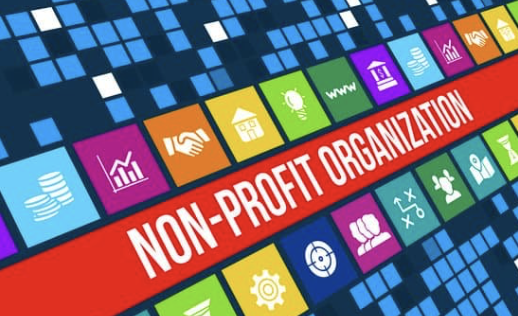While Bitcoin’s reputation as an investment-only asset is on the rise, the regular ease of payment and borderless payment solutions that it brings to the table are often overlooked due to regulations and concerns over illegal use. For many non-profits, they accept Bitcoin because of its lower fees and speed of transactions, but there is much more to gain from using crypto.
According to the 2018 global NGO Technology Report, roughly 72% of the NGOs around the world now accept Bitcoin in one form or another. But the issue is that they only see Bitcoin donors as another type of giving class and many do not even hold the cryptocurrency. Only 3% of the total 5,352 NGOs had a digital wallet. So, the Bitcoin donated are instantly being converted into fiat by most as it is deemed to be a volatile asset.
More than a faster alternative
Yes, Bitcoin is one of the faster and cheaper payment options available globally but that is just skimming off the top of it. Cryptocurrencies are much more capable than just being a fast and cheap payment option. Throw in the transparency of a blockchain and charitable institutions can then report where the money is spent and thus justify their work and attract more charitable donors. Blockchain technology can help remove the various degrees of mistrust that are commonly associated with the functioning of non-profit organizations and charitable entities.
There is a considerable number of important non-profits that accept Bitcoin. From controversial entities like the whistleblower Wikileaks Foundation to more mainstream non-profits like Electronic Frontier Foundation, The Water Project, Save the Children, Wikimedia Foundation, The Red Cross, The Tor Project, Humanity Road, and Doctors without Borders (MSF). All of these organizations are attempting to tap into the massive donation potential of cryptocurrency HODLers, whales and other investors who have large amounts of Bitcoin lying around.
The normal course of operation for every such non-profit is simple. You can go to their website and pay in Bitcoin for a particular task for helping the community or supporting a cause you think is worth supporting. For example, the Water Project accepts a donation in Bitcoin for supporting the following projects:
- Water and Sanitation for a School/Large Community: 3.2034 BTC
- Small Community Water Project: 1.6017 BTC
- Clean, Safe Water for a Family: 0.0224 BTC
- Clean, Safe Water for 1 Person(s): 0.0045 BTC*
While The Water Project allows donation in Bitcoin, the fact that their donation figures for the provision of water are static shows that they are not updating their system very well. For that purpose, various other new projects seem to be stepping up.
Blockchain-based donation assistance
Now, much of the donation drives with Bitcoin have focused on the speed and low cost of Bitcoin transactions. However, their ignorance or fear of overdoing the cryptocurrency and blockchain sector leaves a lot of space for innovators. BitGive’s GiveTrack solution is an example of such a platform. It is a blockchain and bitcoin money donation and management platform that according to their website:
“[IS A] DONATION PLATFORM FOR NONPROFITS TO PROVIDE TRANSPARENCY AND ACCOUNTABILITY TO DONORS BY SHARING FINANCIAL INFORMATION AND DIRECT PROJECT RESULTS IN REAL TIME. GIVETRACK™ BUILDS UPON BITCOIN AND BLOCKCHAIN TECHNOLOGY TO OFFER A CUSTOMIZED PLATFORM FOR NON-PROFITS THAT IS DATA-CENTERED, USER-FRIENDLY, AND PROVIDES A COMPREHENSIVE USER INTERFACE. THE FUTURE OF PHILANTHROPY IS REAL-TIME TRACKING OF FUNDS AND DRIVING MORE OUTCOMES ON THE GROUND.”
So, while the non-profits themselves haven’t stepped up to realize the full potential of blockchain technology and cryptocurrencies, companies like GiveTrack and others are stepping up to help them benefit.
Recognizing the usefulness of such a project, several important non-profits like Save the Children, The Water Project, Medic Mobile, etc have joined the project and may have started sourcing funds through the transparency focused initiative already.
Recognizing the opportunity
For various charitable institutions and non-profits around the world, there are tough times ahead. Recently, there has been a considerable drop in government funding of many non-profits, Bitcoin donation and cutting back on waste is of paramount importance. Add to it the fact that many organizations are experiencing an uptick in cryptocurrency donations, and the future lies surely in investing in the sector.
A new paper by ExeBlock Technology listed several ways in which charities are cashing in on cryptocurrencies and blockchain technology. They include:
- Borderless transactions so that people from around the world can give money without countless currency conversions and other monetary confinements.
- Organizations like UNICEF have sponsored a cryptocurrency mining initiatives whose exploits are given to needy children around the world.
- Bitcoin billionaires and millionaires who are receptible to charitable donations. Case on the point being an anonymous Reddit user who donated over BTC 5,057 to famous charitable non-profits like Watsi, The Water Project, EFF and BitGive itself. Vitalik Buterin, the founder of Ethereum has also funded nonprofits like the SENS research foundation.
- New Fundraising Technology i.e. Decentralized apps or DApps. This new approach has several prominent advantages over conventional apps like tighter security, increased transparency and to store money on the go.
- A new generation of charitable organizations is also being launched on the blockchain that can challenge the status quo.
Non-profits and cryptocurrencies are potentially a match made in heaven and can impact positively in the near future with added accountability, transparency and the opportunity for increased charitable collection.
For the mainstream charitable organizations, it is high time to adapt to the new trend of more pronounced transparency demands from donors amid the possibilities of more donations.
